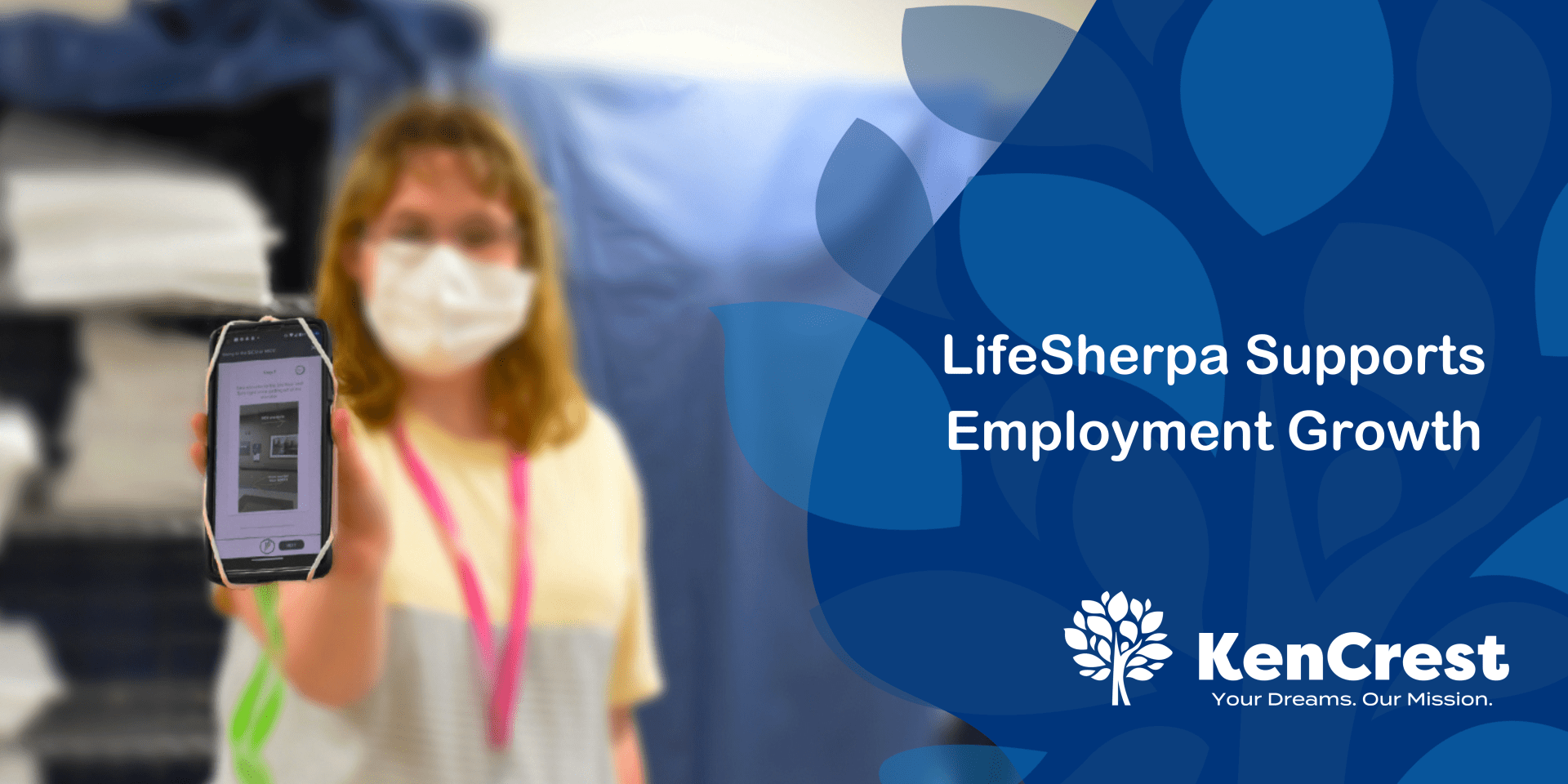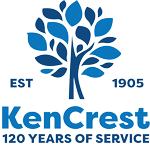
Project SEARCH helps its interns learn valuable job skills through onsite training, classroom curriculum and the LifeSherpa app.
By Sydney Kerelo
On the fifth floor of the Phoenixville Hospital lies KenCrest’s Project SEARCH team, educating and instructing this year’s interns—Lily, Jake, Vinny, and Sherry—each one transitioning from a school setting into the working world.
Project SEARCH helps its interns gain valuable job skills, professional responsibility, self-advocacy, and effective communication through a combination curriculum of classroom lessons and onsite training for the working world through hands-on teachings and a new tool, LifeSherpa.
LifeSherpa is an integrated cloud-based platform that allows job coaches, instructors, and employers to deliver content, reminders, reinforcements, and resources to their employees.
“We use LifeSherpa at Project SEARCH to help our interns learn their roles and gain confidence in the working world,” says Tyler MacReady, the Skills Trainer with Project SEARCH. “One of our interns, Lily, uses the app to help her navigate the hospital, and the more she got to navigate the hospital, the more confident she felt, and that’s a big thing…the more she does it, and the more repetition she gets in this environment, the more confident she feels; which will transfer to future experiences.”
“Now, she doesn’t even have the navigational tasks downloaded on her phone because she doesn’t need them anymore. She knows where she’s going, and that’s been part of the benefit of LifeSherpa,” he adds.
According to MacReady and the LifeSherpa website, this is the end goal for the app, to be a tool used if it’s helpful, not a lifeline.



LEFT TO RIGHT: Jake, Vinny and Sherry at their respective internships at Phoenixville Hospital. // Photos by Aubrey Hoffert.
The app began when CEO Doug Meeker’s son was diagnosed with autism at age 3, according to the website. Meeker became determined to find a way to help his son live a meaningful life and face every challenge ahead of him headfirst. So, with a background in technology, Meeker created a virtual guide to help people with disabilities, like his son, to navigate their day-to-day.
The app allows the administrator to set reminders for specific tasks—like regulating bathroom time or reminding someone to grab their phone charger before leaving the house. The administrator can also create demonstration videos, navigational photo guides, and a script for those interested in becoming more social.
“One of our interns, Vinny, had a rotation in the kitchen, and he had trouble rolling wraps,” says MacReady. “So, I recorded a video of one of the chefs rolling a wrap and created a step-by-step process to help him. Then, when he got better at it, we switched it to show the full video, and if he needs to, he can stop and pause it.”
RELATED: How the Tech First Movement is Changing IDD Services
The app even has an inbuilt feature so that the person using it can text or video call the administrator if they needs help with something. It even records every time the intern or the user reaches out for help, which is critical because the administrator can collect data on the user and see how far they’ve come and where they need a little more assistance.
The LifeSherpa app is compatible with Android and Apple devices, but it requires the company to purchase a license to be able to use it.
“The people we support are growing up in this world full of technology,” says MacReady. “They’ve got phones, and they understand them, so it’s time to meet them when they’re at and engage with them in that world.”
